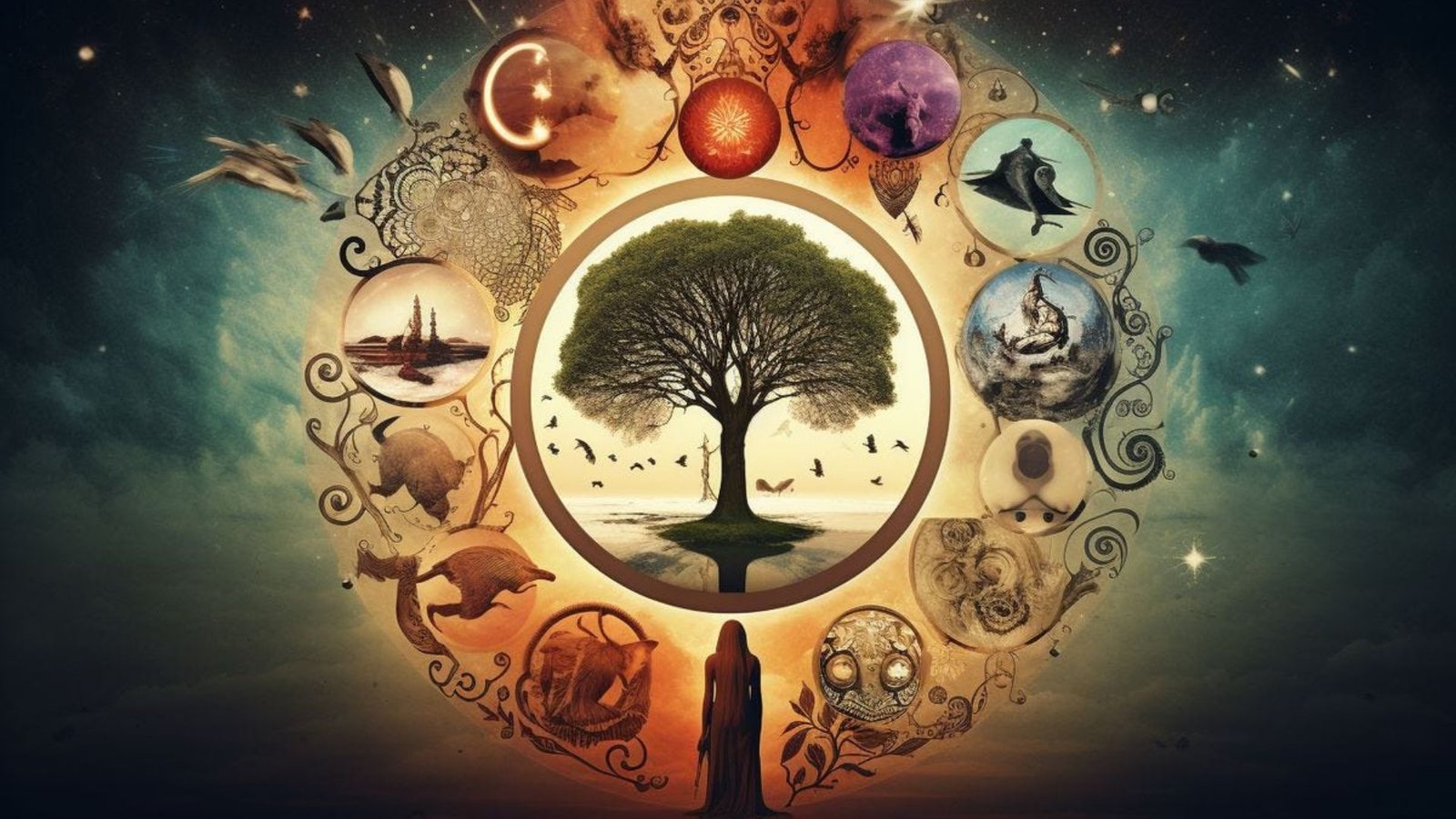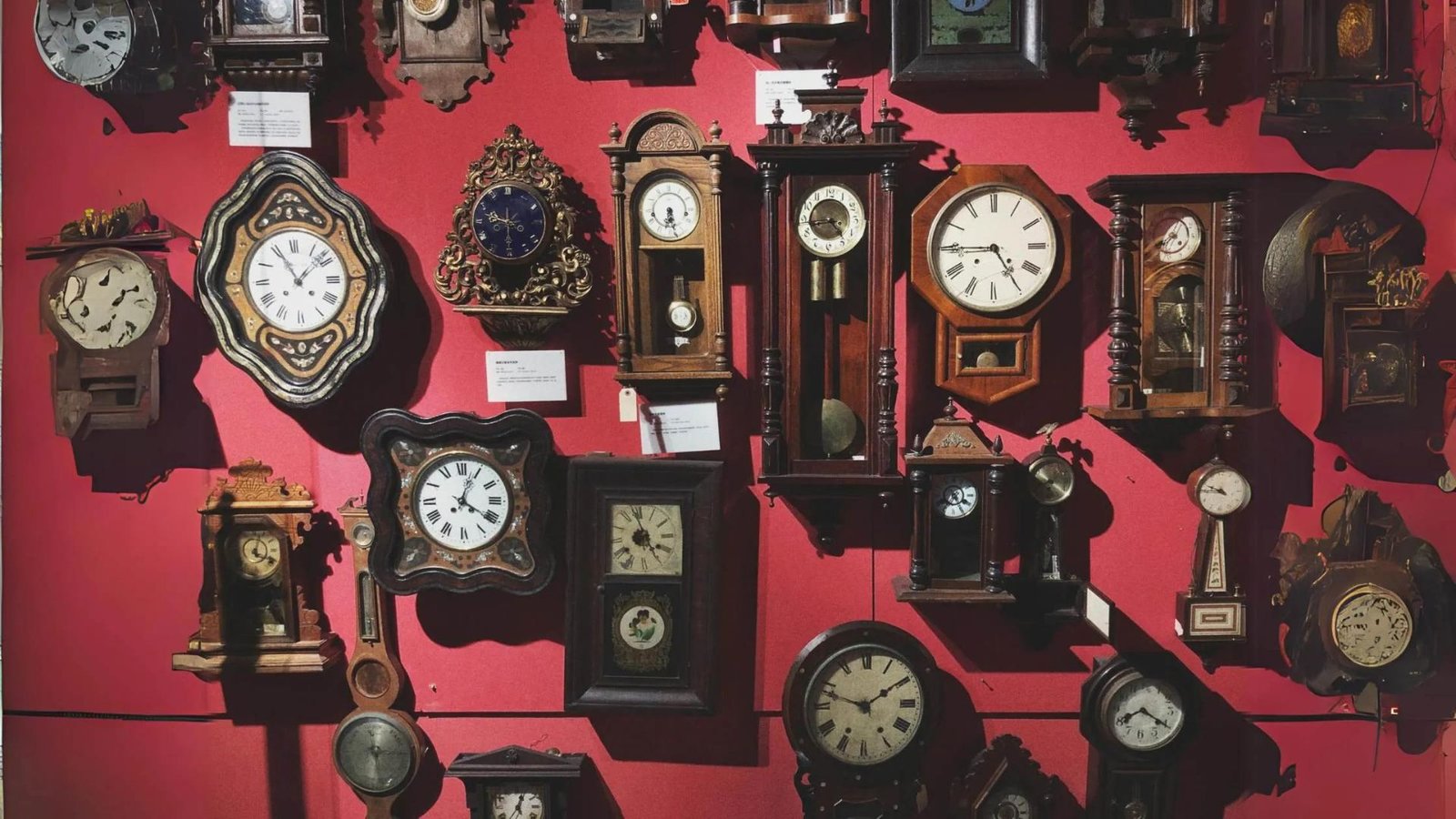Clocks have long been more than just timekeeping devices. Throughout history, they have played a significant role in various cultures, symbolizing everything from technological advancements to philosophical ideas about time and life. The design, function, and cultural significance of clocks vary widely across regions, reflecting the values, beliefs, and traditions of different societies. Let’s explore the role of clocks in different cultures around the world.

Clocks in Western Culture
Timekeeping and Industrialization
In Western cultures, particularly during the Industrial Revolution, clocks became essential tools for regulating work hours and productivity. As factories operated on strict schedules, timekeeping was closely associated with efficiency, punctuality, and economic progress. Grandfather clocks and pocket watches were symbols of wealth and status during the 18th and 19th centuries.
Philosophical Perspectives on Time
The mechanical clock in Western thought has often been used as a metaphor for the universe, especially during the Enlightenment era. Philosophers like Isaac Newton saw time as absolute and linear, with clocks representing the regular, measurable passage of time. This mechanical view influenced Western approaches to science, industry, and daily life.
Clocks as Art
In European culture, clocks were not only functional but also works of art. The Baroque and Rococo periods saw the creation of ornate clocks that were adorned with gold, sculptures, and intricate details. These clocks were often displayed as centerpieces in homes and palaces, reflecting a blend of artistry and craftsmanship.
Clocks in Chinese Culture
Symbolism and Feng Shui
In Chinese culture, clocks have deep symbolic meanings. The Chinese word for “clock” (钟) is pronounced similarly to the word for “end” or “death,” which gives clocks an association with mortality. Because of this, gifting a clock is considered inauspicious as it symbolizes the end of life or relationships.
Clocks also play a role in Feng Shui, the ancient practice of harmonizing individuals with their surrounding environment. Where a clock is placed in a home or building can influence the flow of energy (Qi), with the ticking sound symbolizing the passage of time and the balance between past, present, and future.
Time and Nature
In traditional Chinese philosophy, time is viewed as cyclical rather than linear, reflecting the natural cycles of the seasons and the yin-yang balance. Early Chinese water clocks, which measured time through the steady flow of water, mirrored this belief in the natural rhythm of time. These clocks were used in both astronomical studies and daily life.
Clocks in Japanese Culture
Cultural Adaptation
Japan adopted Western-style mechanical clocks during the Edo period, but with significant cultural adaptations. Early Japanese clocks, known as wadokei, divided the day into 12 uneven hours, with the length of each hour changing with the seasons. This system was based on traditional Japanese timekeeping, which aligned with the sunrise and sunset, emphasizing harmony with nature.
Aesthetic and Spiritual Value
In Japanese culture, the concept of time is often tied to the aesthetic principles of simplicity, impermanence, and the passage of seasons. Clocks are seen as more than just functional devices; they symbolize the fleeting nature of life. Modern Japanese clock designs often blend minimalism and beauty, reflecting the country’s deep respect for craftsmanship and aesthetics.
Clocks in Islamic Culture
Time and Religion
In Islamic culture, time plays a central role, especially in relation to daily prayers. Clocks are essential tools for ensuring that prayers are performed at the correct times, as determined by the position of the sun. The invention of the astrolabe, a precursor to the clock, was a significant contribution to Islamic timekeeping, allowing for accurate calculations of prayer times.
Technological Innovation
The Islamic Golden Age saw many advancements in clockmaking. Muslim engineers, such as Al-Jazari, invented complex water clocks and automata, which were highly advanced for their time. These clocks were not only functional but also celebrated for their ingenuity and craftsmanship, reflecting the Islamic value of scientific exploration and knowledge.
Clocks in Indigenous Cultures
Natural Timekeeping
Many indigenous cultures rely on natural indicators, such as the movement of the sun, stars, and seasons, to measure time. In these cultures, time is often seen as cyclical and connected to the environment, with clocks being less prominent than in industrialized societies. However, the concept of time remains deeply embedded in daily rituals, agriculture, and spiritual practices.
Oral Traditions and Time
In some indigenous cultures, storytelling and oral traditions play a role in keeping track of time. Historical events and seasonal changes are passed down through generations, providing a communal way to understand the passage of time without the need for mechanical clocks.
Conclusion
Clocks hold different meanings and functions across cultures, from the precise timekeeping of Western industrialization to the spiritual and natural rhythms of Asian and indigenous traditions. They symbolize more than just the passage of time; they reflect a society’s values, beliefs, and relationship with the natural world. Whether used as tools for productivity or as symbols of artistic and philosophical ideas, clocks continue to play an important role in shaping cultural identities.





Just tried zo88app and I’m digging the user experience. Easy to navigate, and the games are popping! If you’re lookin for something fresh on your phone, give it a shot: zo88app
For on-the-go gaming, tt88apk is pretty solid. Easy to download and works great on my phone. Worth checking out if you like playing mobile! tt88apk
Die benutzerfreundliche App von Casino Infinity ermöglicht es den Spielern, bequem von unterwegs aus zu spielen und ein angenehmes Spielerlebnis zu genießen. Rakoo Casino bietet neuen Spielern ein attraktives Willkommenspaket, das 100€
Bonusgeld und 150 Freispiele umfasst. Neue Spieler werden bei Casinorex mit einem hohen Willkommensbonus begrüßt, der attraktive Vorteile bietet.
Diese großzügigen Bonusangebote machen Queenspins zu einer beliebten Wahl unter
den deutschen Spielern.
Online-Casinos und Spielotheken ohne deutsche Glücksspiellizenz bergen erhebliche Risiken. Für Spieler bedeutet das zunächst,
dass sie bei Casinos und Spielbanken, die auf der sogenannten Whitelist stehen, sorgenfrei, sicher und legal spielen können. Die Online Slot Betreiber müssen dabei strenge Vorgaben erfüllen,
um eine deutsche Glücksspiellizenz zu erhalten.
Bwin gehört zu den bekanntesten Sportwettenanbietern in Deutschland und bietet nun auch Spielautomaten an.
+ 400 % Einzahlungsbonus für neue Spieler + hoher Neukundenbonus für kleinere Einzahlungen Weitere Benefits des Anbieters
liegen in der Top-Spielauswahl, die verschiedenste Novoline-Klassiker beinhaltet.
References:
https://online-spielhallen.de/rooli-casino-cashback-ihr-weg-zu-mehr-spielguthaben/
It’s not only about getting the item from point A to point
B but also about managing costs, ensuring timely delivery,
and providing excellent customer service.
Ever stumbled upon Facebook Marketplace and wondered
how the shipping process works? We deliver insights, tips,
and strategies on starting and growing your business, helping you navigate
the path to success. Using reliable carriers and addressing any shipping delays promptly also contributes to a
positive buying experience and builds trust with customers.
However, be cautious, as some options don’t include purchase protection. Always review buyer profiles before shipping and use third-party services
that offer purchase protection if safety is a concern.
Although shipping opens new doors for sellers,
be aware of the potential risks and limitations. This helps
create a positive shopping experience and enhances
your reputation on the Marketplace. A 5% selling fee will be deducted
from each transaction, so factor this into your pricing strategy.
Doing so ensures you receive your payment, which arrives within five business days post-delivery
confirmation.
Facebook Marketplace offers an “Insights” feature where you can track your shipping performance.
You can choose to either charge your buyers for shipping or cover the cost yourself (which Facebook will deduct from your sales proceeds).
Facebook Marketplace offers various payment options such
as PayPal, Messenger Payments, and Venmo. Pricing your
items competitively can lead to quicker sales.
Sellers can choose between having buyers pay for shipping or covering the cost themselves, which can then be deducted from
the sales proceeds.
References:
https://blackcoin.co/lightning-link-casino-slots/
Brace yourself for fun mini-games, exciting challenges, and delightful surprises as you navigate this captivating
quest. We believe these requirements are fair and reasonable,
providing you with ample opportunities to enjoy your gameplay.
Kinbet supports a range of payment options,
including Neosurf, PayID, credit cards, Bitcoin, and
Skrill. Kinbet operates under an Anjouan licence, which is common for offshore casinos serving Australia and
New Zealand. Its bonus lineup is extensive, with a multi-stage welcome package,
weekly tournaments, cashback, reloads, and a structured VIP
program that unlocks higher rewards as you progress.
Yes, Gambloria provides a full sportsbook alongside its casino, covering AFL, NRL, soccer, esports, and
more.
When playing at traditional online casinos, free
spins are often tied to one specific game or a selected group of games, meaning you can only use
them on those slots. New players can claim
up to $3750 AUD and 250 free spins over their first three deposits, with clear
terms and a 35x wagering requirement. And holds a Cura\\u00e7ao licence,
which is common for international casinos accepting Australian players.
Fair casinos use certified random number generators and are regularly audited to ensure
that bonus play is as fair as regular play. These bonuses are designed
to boost your playtime and provide extra value, but they come with clear terms, such as wagering requirements and
time limits. This encourages Australian players to regularly visit this section of our casino and become our
loyal members.
References:
https://blackcoin.co/13_vip-slots-casino-review-2022_rewrite_1/
online casinos that accept paypal
References:
ptshop.co.kr
us online casinos that accept paypal
References:
https://i-medconsults.com/companies/10-best-online-casino-real-money-sites-in-usa-for-2025/
If you’re trying to get logged on, 3jllogin is your spot. Very easy to sign in and get started. Defitnitly worth signing up 3jllogin
game xn88 Các slot game này không chỉ mang lại niềm vui mà còn cơ hội trúng những giải thưởng lớn với các vòng quay miễn phí và tính năng bonus độc đáo. TONY01-06S
Game365ok, sounds promising! Covering all the bases, huh? Hoping for a solid and dependable experience. Time to test it out! Give it a go at game365ok
FB7777slot, that’s a lot of sevens! Hope it brings you good luck! Play responsibly and have some fun! You can find it here: fb7777slot
Just stumbled across 588jl.info. One of those online gambling sites kinda like the last one. Seemed pretty generic in my opinion. Check them out for yourself I guess 588jl
Played 92galaxygame yesterday. It’s not too bad. Could be fun for a light session. Give 92galaxygame a try, maybe you’ll get hooked.
Alright, 518betapp! Gave it a shot last night and gotta say, pretty smooth experience. The interface is clean, and I actually won a little somethin’! Definitely worth checkin’ out. Check it out here: 518betapp